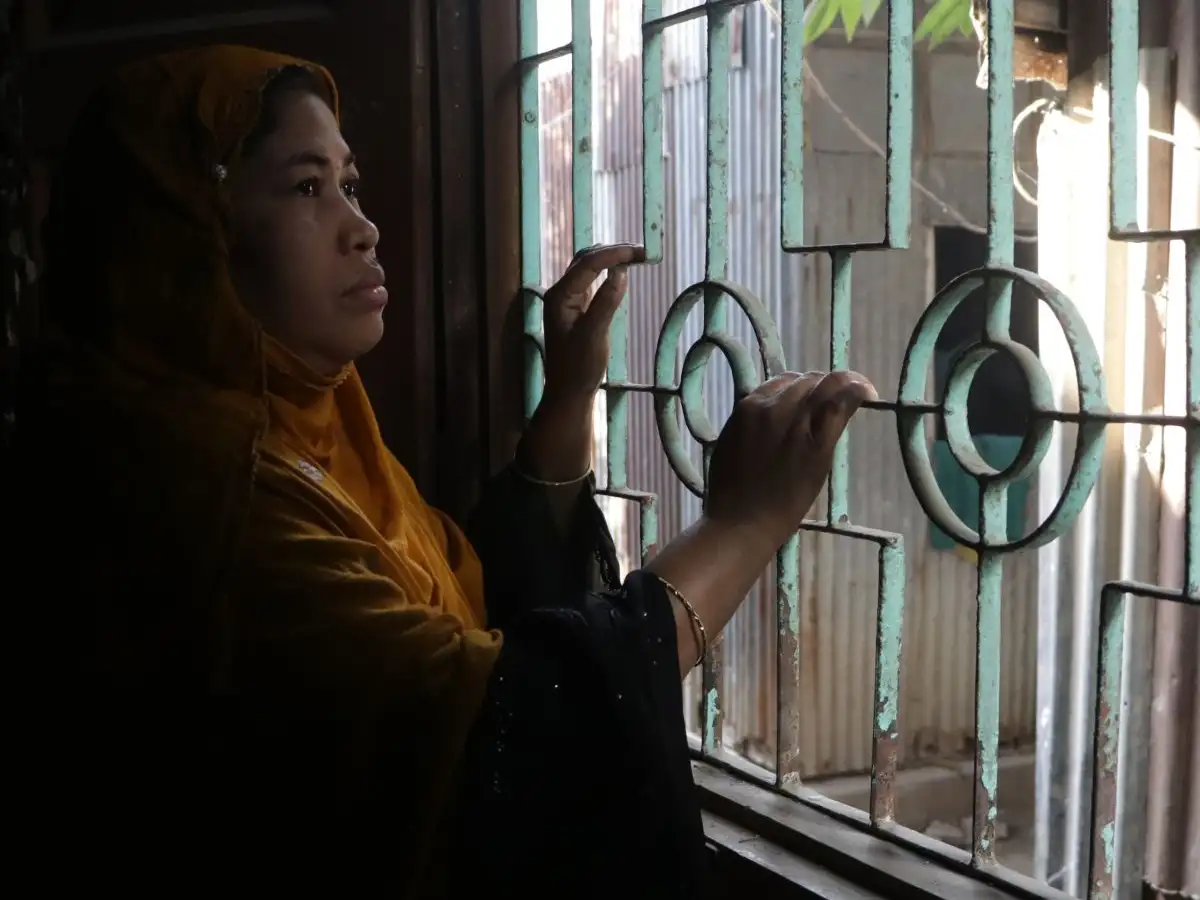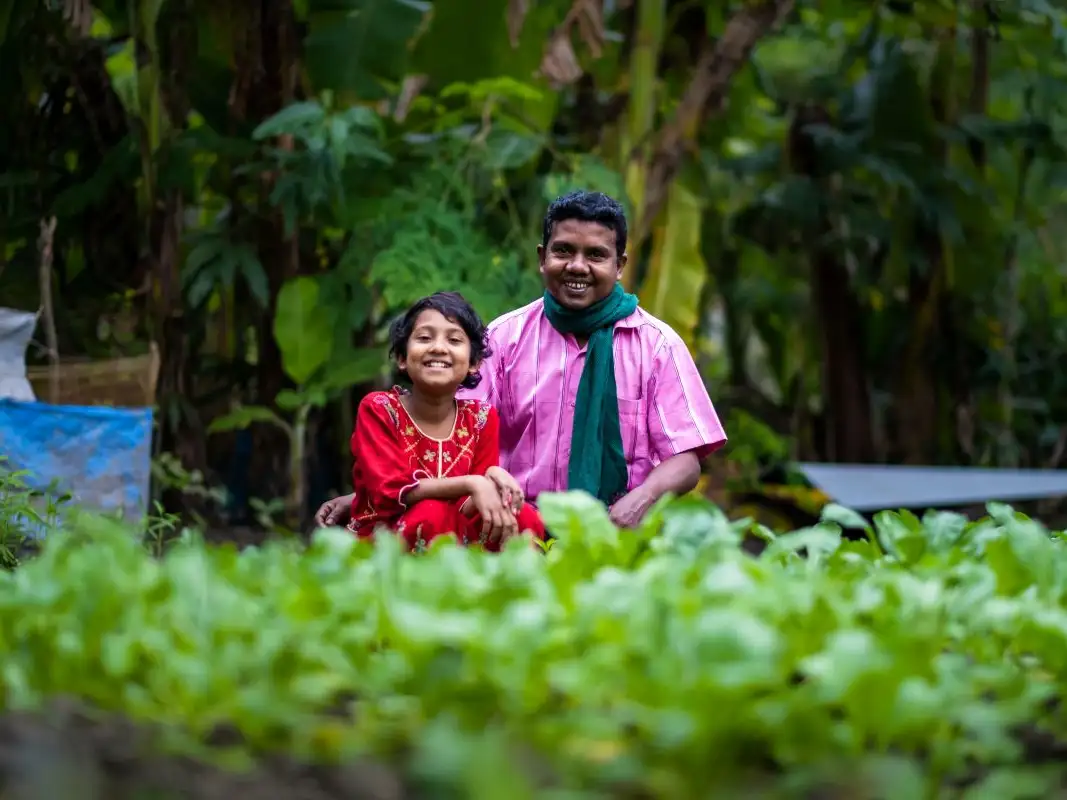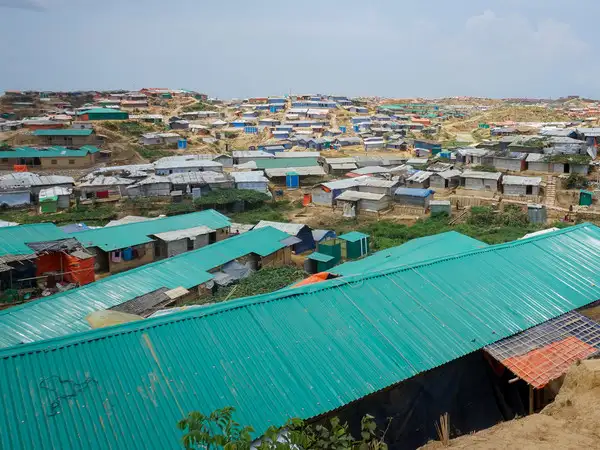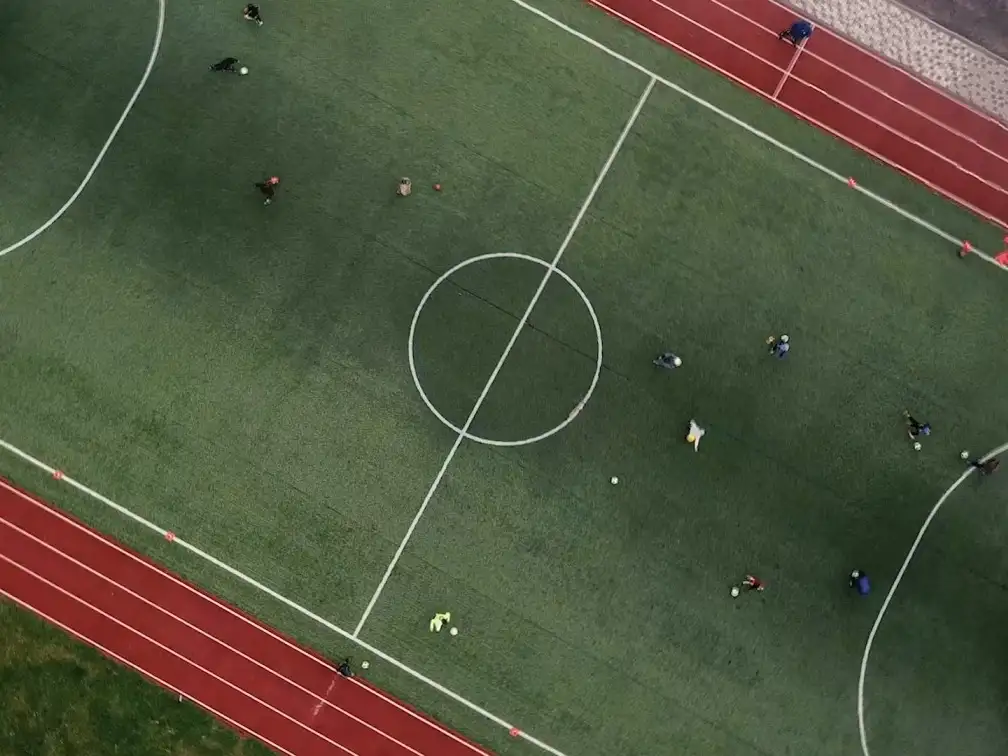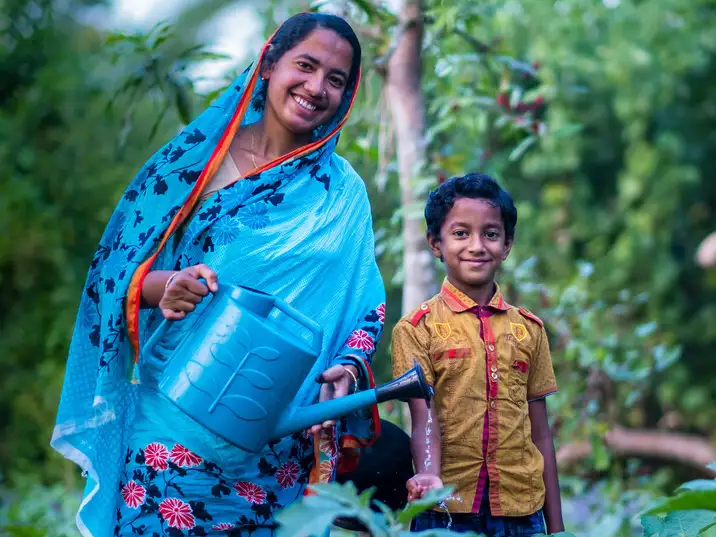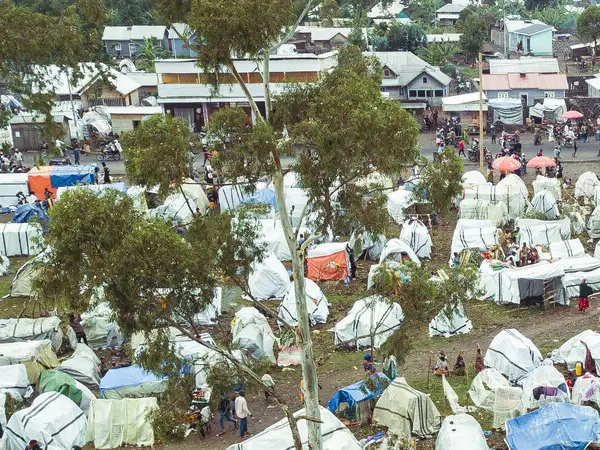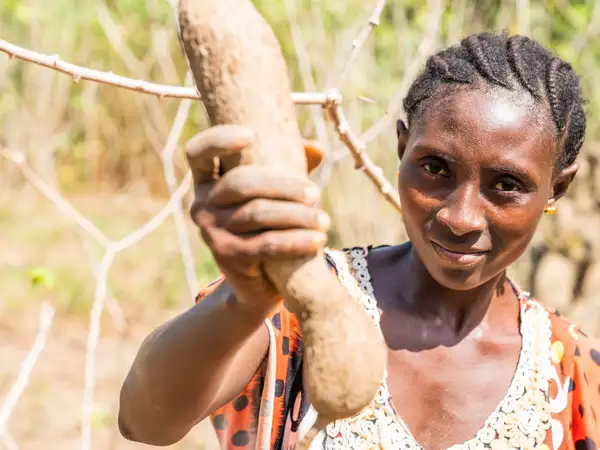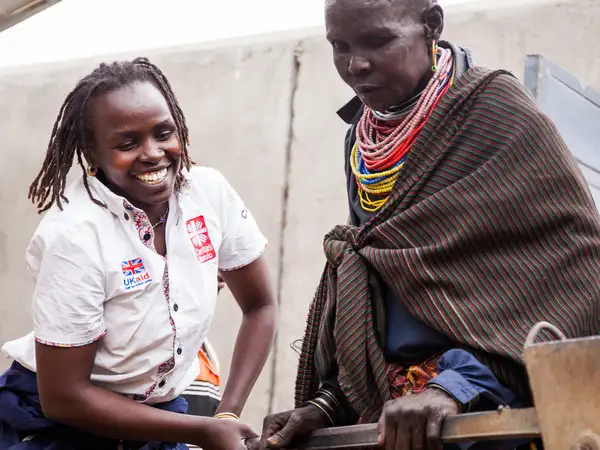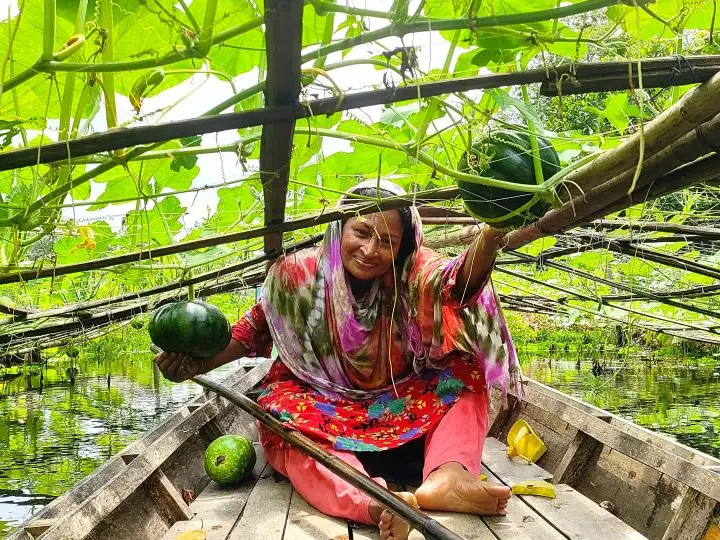

Farmers in Bangladesh have prospered by growing organic crops on floating vegetable beds
Bangladesh is a country about the size of England and Wales, but with a population of over 170 million. Millions of people in Bangladesh are socially, politically and economically excluded. Frequent natural disasters, including cyclones and flooding, as well as overuse of chemicals in agriculture, contribute to extreme climate vulnerability and remain key drivers of poverty.
Bangladesh is also hosting over 1 million Rohingya refugees from conflict in Myanmar, who continue to live in extreme poverty within densely crowded refugee camps. Refugee families are completely reliant on government and diminishing international aid, and have very few options available to improve their lives.
A better world needs all of us. That’s why CAFOD has been working alongside partners in Bangladesh for over 40 years. Together, we’ve been supporting poor and marginalised communities to stand up to the injustices of poverty and the climate crisis, so everyone can have the opportunity to flourish.
Our impact in 2024
In 2024 we reached 41,119 people in Bangladesh.
We helped 4,700 smallholder farmers (3,700 of whom are women) living in the disaster-prone southern coastal region to adopt cultivation practices that increase their resilience to climate shocks, such as cyclones and tidal surges.
We supported a network of women farmers to preserve 2,577 local varieties of rice seed, as well as a range of local vegetable seeds in community seed banks. This allowed farmers to grow crops adapted to their specific environment and replant quickly after losses caused by droughts or floods.
We gave practical support to 1,347 migrants who returned to Bangladesh having suffered exploitation and abuse whilst working abroad. We made sure 39,220 potential migrants were aware of their rights and official migration procedures.
We provided essential services to around 2,900 Rohingya refugees who fled violence in Myanmar and are living in camps in Bangladesh’s Cox’s Bazar district. This included shelter, water and sanitation, as well as nutrition and education for children.
Why CAFOD works in Bangladesh
Corruption and weak governance at all levels – including nepotism, the concentration of power in the hands of a small number of elites, and restrictions of freedom of expression – result in a lack of transparency and access to justice for the poorest, most marginalised people, as well as limiting the influence of local NGOs.
In August 2024, the government of Sheik Hasina was overthrown by a broad coalition of disenfranchised citizens that grew from a student-led protest movement. An interim government was appointed in its place. Fresh elections are expected to take place in late 2025, early 2026.
Despite considerable economic growth in recent years, unemployment continues to be a cause of poverty. As of 2022, approximately 37 million people were not in education, employment or training (12 million of whom were aged 16-24). Women make up less than 35 per cent of the workforce and have limited access to land and credit, and continue to suffer from gender-based violence and patriarchal oppression. The poorest households are reliant on insecure seasonal work and are frequently trapped in cycles of indebtedness, sometimes resulting in conditions of modern slavery. Great economic stress, made worse by the COVID pandemic and war in Ukraine, has driven a dramatic rise in migration abroad. Unfortunately, many of the poorest migrant workers are victims of abuse – both at the hands of corrupt migration agents and overseas employers.
Bangladesh is one of the most at-risk countries in the world to the effects of the climate crisis. Most of the country is no more than 10m (33 ft) above sea level, making it incredibly vulnerable to natural disasters, like flash floods. Alongside flooding, cyclones are becoming more frequent and destructive, affecting more people and growing in intensity and size (the INFORM climate change index projects that, even in an optimistic scenario, close to 10 million Bangladeshis will be exposed to floods by 2050). The impacts of the climate crisis are made even worse by the overuse of chemicals in agriculture, reducing soil fertility and destroying biodiversity.
How we’re responding
Together, we can build a better world. In Bangladesh, your donations will help some of the poorest and most marginalised groups to improve their livelihoods and contribute to an improved quality of life. Together, we can support people to flourish in their communities while regenerating the environment.
Current projects
We’re supporting farmers to adopt sustainable farming practices, preserve traditional seed varieties adapted to local climate conditions through community seed centres, and make vermicompost to boost soil fertility. Farmers are now increasing their yields and selling surplus compost to earn additional income to support their families.
We’re also supporting Indigenous communities to secure their rights to land and live in harmony with nature, to help their families and communities thrive while enabling an ecological transformation.
Finally, we’re supporting women and girls, as well as people living with disabilities, to access opportunities for work and education, using their skills to earn a living through growing vegetables or setting up small businesses.
We’re campaigning for environmental protection of rivers and forests, particularly in collaboration with Indigenous groups whose traditional lands are being polluted and exploited illegally.
We’re advocating for the rights of farmers to use their own seeds to grow crops, rather than being pressured to buy commercial seeds sold by big agricultural businesses which come with expensive and damaging packages of chemical pesticides and fertilisers.
We want justice for migrants who have been mistreated and abused abroad. That’s why we’re working with returning migrant workers to push for legislative change to help them secure compensation and accountability for mistreatment and abuse. We’re also using the experience and knowledge gathered to help people who are considering overseas migration to make informed choices.
We are responding to the escalating violence in Myanmar, which has forced more than 1 million Rohingya to flee to Bangladesh’s Cox's Bazar district, by providing essential services including shelter, water, sanitation and nutrition, as well as education for children.
Latest stories from Bangladesh
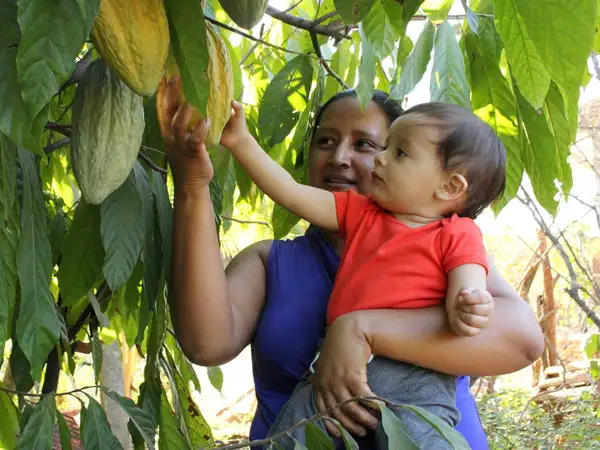
What we do
CAFOD is the official aid agency for the Catholic Church in England and Wales.
With your help, we reach out to people living in hard-to-reach places, in war zones and those who are discriminated against.


